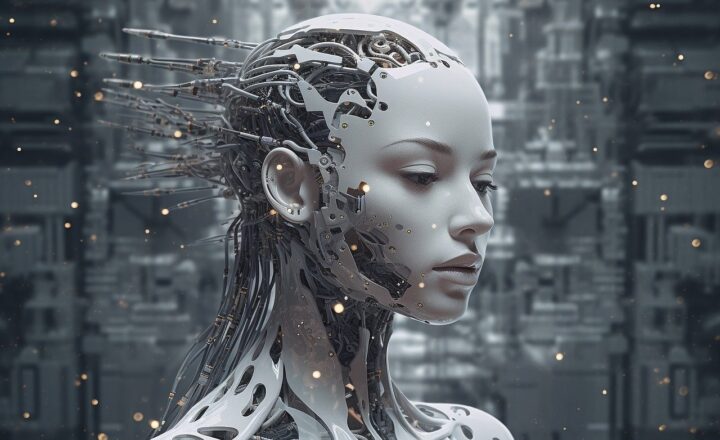How AI is Revolutionizing the Way We Live: From Smart Homes to Self-Driving Cars
November 14, 2024

Artificial Intelligence (AI) is no longer a concept reserved for science fiction—it has woven itself into the very fabric of our daily lives. From the convenience of smart homes to the futuristic allure of self-driving cars, AI is not simply augmenting our existence but revolutionizing how we interact with the world around us. In this article, we will delve into the various applications of AI, illustrating how this transformative technology enhances aspects of our lives we often take for granted.
1. Understanding Artificial Intelligence
At its core, AI refers to the simulation of human intelligence in machines programmed to think and learn from experience. This encompasses various technologies such as machine learning, natural language processing, and robotics. Companies like Google, Amazon, and Tesla are at the forefront, employing AI to innovate and improve user experience.
AI systems leverage data to improve their performance continuously. For instance, machine learning algorithms analyze large datasets to recognize patterns and make predictions, while natural language processing allows for human-like interaction with technology.
2. Home Automation: The Age of Smart Homes
Imagine arriving home, and the lights turn on, your favorite playlist starts playing, and the thermostat adjusts to your preferred temperature—all without lifting a finger. Smart homes utilize AI to automate everyday tasks, enhancing convenience and energy efficiency.
Key Features of Smart Homes:
- Voice Assistants: Devices like Amazon Echo and Google Home enable voice-activated control, allowing users to manage all connected devices simply by speaking commands.
- Smart Thermostats: AI-powered thermostats, such as Nest, learn your temperature preferences over time and adjust accordingly, optimizing energy usage while maximizing comfort.
- Automated Security Systems: Smart security systems provide real-time monitoring and alerts. AI can recognize faces and unusual activities, thus enhancing home safety.
Smart homes are a testament to how AI not only simplifies our lives but also contributes to a sustainable future by promoting energy efficiency and security.
3. Transportation Transformed: The Era of Self-Driving Cars
Self-driving cars are one of the most discussed applications of AI, promising to change the landscape of transportation. Companies like Tesla, Waymo, and Uber are investing heavily in this technology to enhance safety and efficiency on the roads.
How Self-Driving Cars Work:
Autonomous vehicles utilize various AI-powered technologies, including:
- Lidar and Cameras: These devices help self-driving cars perceive their surroundings, detecting obstacles, road signs, and lane markings.
- Machine Learning Algorithms: Through analyzing data from millions of miles traveled, these algorithms improve the vehicle’s decision-making in complex environments.
- Predictive Analytics: AI can predict potential issues, such as traffic congestion or hazardous conditions, allowing the vehicle to make necessary adjustments in real time.
The potential benefits of self-driving cars include reducing traffic accidents, lowering transportation costs, and improving mobility for those unable to drive.
4. AI in Healthcare: Revolutionizing Patient Care
AI is transforming the healthcare sector, enabling personalized medicine and efficient patient care. With the ability to analyze vast datasets, AI can assist healthcare professionals in diagnosing illnesses and recommending treatments.
Applications of AI in Healthcare:
- Predictive Analytics: By analyzing patient data, AI can predict potential health issues, facilitating early intervention and improving outcomes.
- Telemedicine: Virtual consultations equipped with AI-powered diagnostic tools are becoming commonplace, making healthcare accessible to individuals in remote areas.
- Robotics in Surgery: Robots equipped with AI provide surgeons with precision and control, enhancing the accuracy of complex surgeries.
Through these innovations, AI has the potential to not only improve patient outcomes but also streamline administrative processes within healthcare facilities.
5. AI in Everyday Life: Enhancing Daily Tasks
Beyond smart homes and transportation, AI is enhancing various aspects of our daily routines. From personalized recommendations on streaming services to the algorithms that help us navigate social media, AI impacts our lives continuously.
Common Everyday Applications of AI:
- Personalized Advertising: AI analyzes user behavior to deliver targeted ads, enhancing our experience while browsing online.
- Smartphones and Virtual Assistants: Features like Siri and Google Assistant allow users to manage tasks, set reminders, and control smart devices through voice commands.
- Social Media Algorithms: AI curates content that appears in your feed based on your interactions, making your online experience more engaging and relevant.
These applications illustrate how AI enriches our daily lives, providing convenience and personalized experiences while optimizing how we access information and engage with technology.
6. The Future of AI: Opportunities and Challenges
As we continue to integrate AI into our lives, it’s essential to consider the future of this technology. Potential opportunities include:
- Economic Growth: By automating tasks and enhancing productivity, AI has the potential to drive economic growth across sectors.
- Enhanced Innovation: As AI continues to evolve, it can lead to groundbreaking innovations in various fields from education to environmental conservation.
- Improved Quality of Life: By alleviating mundane tasks, AI can provide individuals more time and resources for personal fulfillment and leisure activities.
However, challenges such as ethical concerns, job displacement due to automation, and data privacy must be addressed. A collaborative effort among technologists, policymakers, and society is vital to ensure AI’s benefits are maximized while mitigating potential risks.
Conclusion
Artificial Intelligence is undeniably changing the way we live—making our homes smarter, transforming transportation, enhancing healthcare, and enriching our daily routines. As we embrace these innovations, it is essential to remain vigilant about the ethical implications and strive for a balanced approach to AI integration in society. By staying informed and engaged, we can harness the power of AI to create a better future for ourselves and the generations to come. The revolution is here, and it’s only just beginning.






